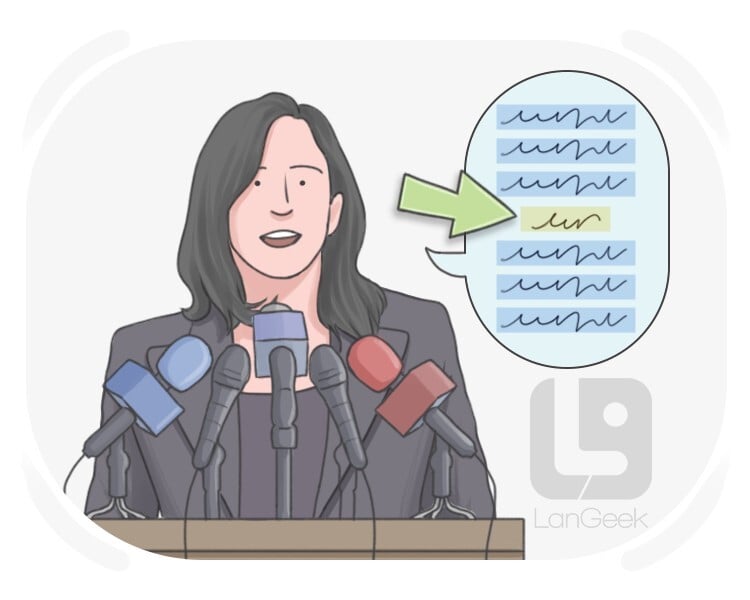

(二言語を話す)
バイリンガル
able to speak, understand, or use two languages fluently


(検索する)
調べる
to try to find information in a dictionary, computer, etc.
文法情報:

(言葉(ことば))
単語(たんご)
(grammar) a unit of language that has a specific meaning


(面白さ)
楽しさ
the feeling of enjoyment or amusement

N/A
done to enjoy oneself or as a joke, without serious intent

N/A
to ridicule someone or something in a teasing or humorous manner

(音素的な)
音韻的な
relating to the smallest distinctive units of sound in a language


(記号)
シンボル
a mark or set of characters that shows a certain meaning, particularly in fields like chemistry, music, or science

(定義づけ)
定義
the act or process of explaining the meaning of a word, concept, or term

(ボールド)
太字 (ふとじ)
a typographic style that emphasizes or highlights text by making it thicker and darker in appearance compared to the surrounding text

N/A
(grammar) any of the grammatical classes that words are categorized into, based on their usage in a sentence
Part of speech is a grammatical category that describes the role a word plays in a sentence. The main parts of speech include nouns, pronouns, verbs, adjectives, adverbs, prepositions, conjunctions, and interjections. Each part of speech serves a specific function, such as naming people or things, replacing nouns, expressing actions or states of being, describing nouns, modifying verbs or adjectives, showing relationships between words, connecting phrases or clauses, and expressing emotions. Understanding the different parts of speech is essential for constructing clear and grammatically correct sentences, as it helps identify how words interact within a sentence.

(フレーズ)
句
a group of words put together in a meaningful way
A phrase is a group of words that work together to convey a specific meaning but does not form a complete sentence. Phrases can consist of a noun and its modifiers, a verb and its complements, or other combinations of words. For example, "a beautiful sunset" is a noun phrase that describes a sunset, while "running quickly" is a verb phrase that indicates the action of running at a fast pace. Phrases can serve various roles in sentences, such as subjects, objects, or complements, and they help to add detail and depth to language. Unlike sentences, phrases do not contain a subject-verb pair and cannot stand alone as complete thoughts.


(説明する)
定義する
to say the meaning of an expression or word, particularly in a dictionary
文法情報:


(強める)
強調する
to give special attention or importance to something
文法情報:


(共感する)
関係がある
to feel a connection or understanding with someone or something
文法情報:


(つながった)
接続された
linked or associated with others


(額 (がく))
量 (りょう)
the total number or quantity of something


(公的な)
公式の
holding a position of authority or responsibility within an organization or government

(行動する (こうどうする))
振る舞う (ふるまう)
to act in a particular way


(工業の)
産業の
related to the manufacturing or production of goods on a large scale


(合計額)
金額
a total of money, typically owed in a financial transaction


(装う)
ふりをする
to act in a specific way in order to make others believe that something is the case when actually it is not so
文法情報:


(証明書)
修了証書
an official document that states one has successfully passed an exam or completed a course of study
A certificate is an official document that confirms the completion of a course, program, or achievement. It is often awarded to individuals who have met certain requirements or demonstrated specific skills in a particular area. Certificates can be given for academic courses, training programs, or professional development, and they serve as proof of the knowledge or skills gained. They may be issued by schools, universities, organizations, or other institutions and are commonly used to recognize accomplishments and qualifications.
文法情報:


(いえいえ)
とんでもない
used to respond to thanks in a polite and modest manner


(法律的な (ほうりつてきな))
法的な (ほうてきな)
related to the law or the legal system

(ティック)
チェックマーク
a mark indicating that something has been noted or completed etc.


(分かる)
理解する
to realize or understand something
文法情報:


(考える)
推測する
to consider something as true without being sure
文法情報:

(意義(いぎ))
意味(いみ)
the message that is intended or expressed or signified


(予想(よそう))
推測(すいそく)
an attempt to give an answer without having enough facts


(ポスト)
郵便 (ゆうびん)
the official service or system responsible for delivering letters, parcels, and other mail to their intended recipients

(ポスト)
郵便 (ゆうびん)
the letters, parcels, and other mail that are sent or delivered through the official postal service or system

(職位)
ポスト
a job, position, or role, often within an organization or a company

(柱)
ポスト
a sturdy pole made of metal or timber that is dug into the ground to be used as a marker or support something
A post is a vertical, often sturdy, structure used to support or anchor something, such as a fence, sign, or a piece of equipment. Posts can be made from materials like wood, metal, or concrete and are typically driven into the ground or secured in place. They are used in various applications, from holding up fences or gates to providing support for structures like pergolas or flagpoles. Posts are an essential component in many construction and outdoor projects, offering stability and strength to the objects they support.
おめでとうございます! !
34 から undefined 語を学びました。学習と語彙の復習を改善するために、練習を始めましょう!
レビュー
フラッシュカード
綴り
クイズ
